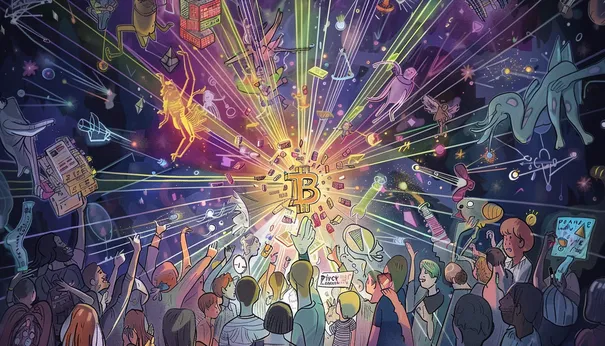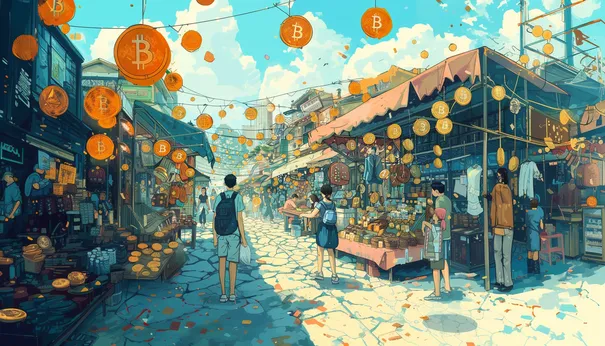Solana Token Extensions

The launch of Solana token extensions represent an incredibly important moment for Solana. These smart tokens offer an innovative suite of features and are not just an incremental improvement; they represents a paradigm shift in how digital assets and stablecoins are designed, utilized, and perceived within the web3 space.
Solana token extensions, by imbuing digital assets with advanced functionalities such as confidential transactions, token-gated access, and enriched metadata, allow businesses to operate with unprecedented efficiency, security, and flexibility. These capabilities challenge the traditional financial systems by offering a decentralized alternative that is not only more inclusive but also more adaptable to the complex needs of modern digital interactions.
This guide delves deep into the essence of tokens on blockchain networks, examining their transformative role in digitizing and democratizing asset ownership and transactions. It explores the key unlocks of tokenization, sheds light on what Solana token extensions are and how Solana token extensions work, and unpacks their vast potential to unlock novel use cases and foster new ecosystems. Through this exploration, we aim to provide a clear, comprehensive understanding of why Solana's token extensions are considered such a promising development for web3.
What Are Tokens on Blockchains?

Blockchain technology introduced the concept of cryptocurrency tokens, which are digital representations of value or rights that operate on its secure and decentralized infrastructure. These tokens have revolutionized how we perceive and manage value, enabling a wide array of applications beyond traditional financial systems.
Digital Assets and Their Representation
Tokens on blockchain networks serve as digital assets that can embody various forms of value. They can represent:
Digital or cryptocurrencies like Bitcoin and stablecoins, which can be used for transactions, savings, or investments.
Equity tokens that represent ownership or governance rights in a company or protocol, similar to traditional stocks.
Tangible or intangible assets, such as real estate or intellectual property, tokenized into fractional ownerships for easier and more accessible trading.
Tokens can grant access to certain services, platforms, or features within a decentralized application (dApp), acting as a key to unlock specific functionalities.
Leveraging Blockchain's Core Features
Tokens derive their unique properties from the underlying blockchain technology, which provides:
The cryptographic foundation of blockchains ensures that tokens are protected against fraud and unauthorized access.
Every transaction and token ownership is recorded on a public ledger, allowing for verifiable and transparent tracking of asset movements and ownership.
Blockchains operate across a distributed network of computers, eliminating the need for central authorities or intermediaries. This decentralization ensures that tokens can be transacted or verified by anyone in the network, promoting a trustless environment.
Enabling Trustless Transactions
One of the revolutionary aspects of blockchain tokens is their ability to facilitate trustless transactions. This means that parties can exchange value or rights without needing to trust each other or rely on a third party for verification. Smart contracts, known on Solana as onchain programs, automate and enforce the terms of transactions, further reducing the need for intermediaries and lowering the risk of fraud or disputes. This trustless nature is crucial for:
Instantly verifying the owner of a token without the need for a central registry.
Allowing users to transact directly with each other, enhancing efficiency and reducing transaction costs.
Enabling a global user base to access and transact with tokens, breaking down geographical and financial barriers.
In summary, tokens on blockchain networks are not just digital assets; they are a fundamental shift in the way we define, manage, and transact value. By leveraging the security, transparency, and decentralization of blockchain technology, tokens enable a wide range of applications, from financial services and investments to access management and ownership distribution. This versatility and capability make tokens a cornerstone of the blockchain revolution and a key driver of innovation in various
Why Is Tokenization Important?

Tokenization represents a fundamental shift in the way we conceive, manage, and transfer value across the digital and traditional economies. By converting rights to an asset into a digital token on a blockchain, tokenization breaks down barriers to investment, opens up new avenues for financial inclusion, and lays the groundwork for a more transparent and efficient economic system.
Transforming Economic Transactions
Tokens already reimagine the fabric of economic transactions by:
They convert physical or intangible assets into digital tokens, making ownership easily transferable and divisible. This digitization democratizes access to investments, allowing more people to participate in markets from which they were previously excluded by making it easier and more affordable to buy and sell fractions of assets that were previously out of reach for the average investor. This includes not just cryptocurrencies and digital assets but also real estate, art, and other high-value investments. By lowering the barriers to entry, tokenization enables a broader base of investors to participate in the financial markets, potentially leading to more diversified investment portfolios and a more inclusive financial ecosystem.
Tokenization paves the way for innovative financial products and services that were previously unimaginable. From stablecoins that offer price stability in the volatile crypto market to non-fungible tokens (NFTs) that enable the ownership of unique digital items, tokenization is at the heart of many of the most exciting developments in finance today. Furthermore, decentralized finance (DeFi) platforms use tokenization to recreate traditional financial services, such as lending and borrowing, without the need for intermediaries, offering users more control over their financial transactions.
By leveraging tokens, projects can raise funds directly from a global pool of investors via Initial Coin Offerings (ICOs) or Security Token Offerings (STOs), bypassing traditional capital-raising methods. Moreover, token-based ecosystems enable more transparent and efficient asset management practices, thanks to blockchain's inherent transparency and immutability. Each transaction is recorded on a tamper-proof ledger, accessible to anyone, which helps reduce fraud and increase trust among participants. This level of transparency is particularly transformative for industries plagued by opaque transactions and records, such as real estate and art. Moreover, the security features of blockchain reduce the risk of counterfeiting and unauthorized transactions, further protecting investors and asset owners.
Enabling Decentralized Applications (dApps)
Decentralized applications (dApps) offer alternatives to centralized systems across various sectors, from finance to social media. Tokens play a pivotal role in this ecosystem, not just as a medium of exchange but as integral components that enable and enhance the functionality, governance, and economic models of dApps.
Many dApps require tokens to function. These tokens can serve as the "fuel" for executing transactions or interacting with smart contracts on the blockchain. For example, Genesys Go's Shadow Token (SHDW) is used to pay for transaction fees and computational services, enabling the decentralized operation of storage on its network. Similarly, Solana's native token (SOL) is used for transaction fees and staking, supporting the network's high throughput and fast processing times.
Governance tokens confer voting rights to token holders, allowing them to participate in decision-making processes about the future direction and development of the dApp. This decentralized governance model ensures that changes to the application are made transparently and democratically, reflecting the collective will of its users rather than the dictates of a central authority.
Tokens are used within dApps as incentives to encourage certain behaviors from users and participants. For instance, liquidity providers in decentralized exchanges (DEXs) are often rewarded with tokens for supplying liquidity to trading pairs. These incentive mechanisms are crucial for building and maintaining active, engaged communities around dApps, ensuring their longevity and success.
Some dApps use tokens to grant access to certain features or levels within the application. These can range from exclusive content on a decentralized streaming platform to special privileges in a decentralized autonomous organization (DAO). Token gating ensures that only committed or invested users can access these features, fostering a sense of ownership and community among participants.
Tokens enable complex economic models within dApps, facilitating value exchange between users, creators, and service providers. By tokenizing assets, services, or even reputation, dApps can create internal economies where tokens serve as the medium of exchange, aligning the interests of all parties involved and promoting a self-sustaining ecosystem.
Fostering New Ecosystems
The proliferation of blockchain technology and the innovative use of tokens have led to the creation of entirely new ecosystems and the transformation of traditional ones. These ecosystems, built around the principles of decentralization and direct participation, are redefining what's possible in finance, art, gaming, and beyond.
The impact of tokens on the financial sector has been particularly profound, with DeFi emerging as a major force challenging traditional finance. Through the use of tokens, Solana DeFi platforms offer a wide range of services, from lending and borrowing to yield farming and insurance, all without the need for traditional financial intermediaries. This not only makes financial services more accessible but also more transparent and often more efficient. Solana's ecosystem, known for its high throughput and low transaction costs, has become a fertile ground for DeFi applications, further expanding the possibilities for decentralized finance.
Solana NFTs have opened up new avenues for digital ownership and creativity, allowing artists, creators, and collectors to buy, sell, and trade digital art and collectibles with provenance and ownership recorded on the blockchain. This has not only revolutionized the art world but also created new opportunities in gaming, entertainment, and digital real estate. Solana’s support for NFTs, combined with its token extensions, offers enhanced functionalities such as programmable royalties, metadata flexibility, and improved transaction privacy, enriching the Solana NFT ecosystem.
Community and social tokens are redefining engagement and value distribution within online communities and platforms. These tokens enable creators and communities to monetize content, reward engagement, and foster a sense of ownership and belonging among members. On Solana, the integration of token extensions can enhance these tokens with features like access control, revenue sharing, and community governance mechanisms, further empowering creators and communities.
The gaming industry and emerging metaverse platforms are increasingly incorporating blockchain tokens to create immersive, interactive experiences where players can truly own in-game assets, trade them, or use them across different virtual worlds. Solana’s scalability and its token extensions provide a robust infrastructure for gaming dApps and metaverse projects, enabling real-time interactions, player-driven economies, and new forms of online identity and community engagement.
These ecosystems represent just the beginning of how tokens are reshaping industries and communities. By providing the tools for more secure, transparent, and equitable systems of exchange, tokens are laying the groundwork for a new era of digital innovation and economic empowerment. Solana, with its advanced token extensions, is at the forefront of this transformation, offering developers, creators, and users a powerful platform to explore and realize the full potential of decentralized ecosystems.
What Are Solana Token Extensions?

Solana token extensions, previously known as the Token 22 program and sometimes called Super Tokens or Smart Tokens, mark a significant technological advancement within the smart contract blockchain landscape. These extensions are engineered to significantly augment the core functionalities of tokens on the Solana blockchain, thereby expanding the horizons of what digital assets can accomplish.
Innovation in Token Functionality
The primary goal of Solana token extensions is to enhance the capabilities of digital assets far beyond their traditional scope. These enhancements not only aim to address current limitations but also anticipate future needs and applications of digital assets, including:
Allows for the privacy of transaction amounts and token balances, ensuring that details remain concealed while still permitting audits by authorized entities. This feature is crucial for sensitive financial operations and maintaining user privacy.
Facilitates access control to specific assets or services based on token ownership, serving as a powerful tool for verifying user eligibility or membership, and enabling exclusive access to content or functionalities.
Enables the association of rich transactional data directly with token transfers, facilitating more context-aware and sophisticated transactions, crucial for complex financial instruments and applications.
Provides the ability for developers to execute custom logic before or after token transfers, allowing for the implementation of advanced features such as automated royalties, dynamic fees, or conditional transactions based on external criteria.
Allows token owners to delegate their tokens' authority permanently to another account or smart contract, enabling scenarios like subscription services, automated governance participation, or complex asset management strategies without relinquishing ownership.
Enhances the support for NFTs with features like verifiable metadata, royalty configurations, and unique identifiers, empowering artists, creators, and collectors to manage, trade, and showcase their digital assets securely and transparently.
Enables tokens to have built-in, programmable restrictions that can enforce compliance with regulatory requirements, geographic restrictions, or other conditional access controls, ensuring tokens operate within predefined legal and operational frameworks.
This feature allows issuers to freeze token transfers in specific circumstances, a critical capability for regulatory compliance, or in response to security concerns, providing an added layer of control and safety for token ecosystems.
Collaboration and Development
The development of Solana token extensions was not an isolated endeavor but a collaborative effort involving developers and stakeholders within the Solana community. This partnership aimed to address the growing demand for more complex and secure digital asset interactions, ensuring that:
The extensions are built without compromising Solana's renowned scalability and security, maintaining high throughput and low transaction costs even as tokens become more complex.
By adopting an open-source approach to the token minting program, Solana ensures that developers and institutions can contribute to and benefit from the continuous evolution of token functionalities.
Solana token extensions are made possible through a sophisticated open-source token minting program that integrates seamlessly with Solana's blockchain architecture. This technical foundation is pivotal for:
The minting program allows assets to be imbued with a diverse set of features at the token level, moving beyond basic transactions to support advanced behaviors natively.
Developers have the flexibility to choose which features to enable for their tokens, allowing for tailored solutions that meet specific needs or regulatory requirements.
Despite their advanced capabilities, tokens created with extensions are designed to be backward compatible with the existing Solana ecosystem, ensuring seamless integration with dApps and services that adhere to the SPL Token standard.
Solana token extensions are a testament to the blockchain's commitment to innovation, offering a glimpse into the future of digital assets where programmability, security, and user privacy are paramount. By enabling a new generation of tokens with rich, native functionalities, Solana is setting a new standard for what is possible within the Web3 space, further solidifying its position as a leading platform for decentralized applications and financial technology.
Why Are Solana Token Extensions Innovative?

Solana token extensions enhance the capabilities of digital assets on the Solana blockchain, providing new features that extend beyond traditional token functions. The extended capabilities offer practical solutions to existing limitations in digital asset transactions, privacy, and programmability.
Expanded Utility of Digital Assets
Solana token extensions broaden the utility of digital assets, enabling new features that address specific needs within the blockchain ecosystem, including confidential transactions, token-gated access, integration of transfer fees, mandatory metadata, and more as described above.
Customizable Features
Developers can tailor the behavior of tokens to fit specific project needs, optimizing digital asset performance for various applications.
Smart Contract Integration
Token extensions work seamlessly with smart contracts, known on Solana as an onchain program, enabling automated, conditional transactions that can execute complex agreements and business logic directly on the blockchain.
Programmable Restrictions
Developers can apply customizable constraints to tokens, ensuring operational compliance and adherence to regulatory requirements.
What Use Cases Do Solana Token Extensions Unlock?

Solana token extensions are not just technological innovations; they are enablers of new and transformative use cases across the blockchain landscape. By unlocking a diverse array of capabilities, these extensions cater to a wide spectrum of applications, from enhancing privacy and security to facilitating complex financial operations and creating more interactive digital experiences.
Enhanced Privacy and Security
These are crucial for sensitive financial operations, providing privacy for users by concealing token balances and transaction amounts. This feature is particularly beneficial for:
Allowing companies to execute payroll transactions with confidentiality, ensuring that employee salaries remain private.
Businesses can conduct transactions with each other without disclosing sensitive financial information, maintaining competitive secrecy and financial privacy.
Improved Compliance and Access Control
By requiring specific criteria to be met before a transfer can occur, token-gated transfers ensure that only authorized participants can engage in certain transactions. This capability is vital for:
Facilitating compliance with Know Your Customer (KYC) and Anti-Money Laundering (AML) regulations by ensuring that tokens can only be transferred between verified parties.
Enabling access to premium content or services based on token ownership, such as VIP events, specialized forums, or subscription-based services.
Extensions can be utilized in decentralized identity solutions, providing secure mechanisms for managing identity verification and access rights.
Streamlined Transactions and Business Processes
This feature allows for the embedding of additional information with each transaction, streamlining processes like:
Simplifying the matching of payments to invoices in business operations, reducing administrative overhead and errors.
Enabling detailed tracking of goods and services as they move through the supply chain, enhancing transparency and accountability.
Financial Innovation and Asset Management
Token extensions facilitate the development of stablecoins with built-in compliance, governance, and programmability features, leading to:
Allowing for stablecoins that can be programmed with specific rules for usage, governance, and distribution, adapting to regulatory changes and market needs.
Implementing features that can help manage liquidity and maintain stability more effectively than traditional stablecoins.
Token extensions enable a new paradigm in asset management by allowing for:
Enhancing the liquidity and market accessibility of real-world assets such as real estate, art, and commodities through tokenization.
Creating more complex and secure DeFi products that can cater to a broader range of financial needs and preferences.
Interactive Digital Experiences
Leveraging token-gated access and confidential transfers to create unique, engaging experiences in the digital collectible and gaming sectors. This includes:
Offering access to special items or levels within games based on token ownership.
Ensuring the privacy of transactions related to high-value NFTs and collectibles.
Conclusion
The advent of Solana token extensions marks a pivotal moment in the evolution of blockchain technology, heralding a new era of smart tokens that bridges the gap between traditional and digital finance. These extensions not only enhance the utility and programmability of digital assets but also open up a myriad of possibilities for innovation across various sectors.
By facilitating a seamless integration of advanced features such as confidential transactions, token-gated access, and enriched metadata, Solana is setting a new standard for the future of finance. This innovation encourages adoption and collaboration within the blockchain community, driving forward the development of solutions that are secure, efficient, and tailored to the complex needs of modern digital economies.